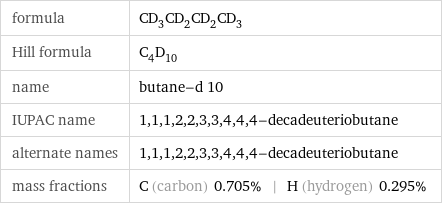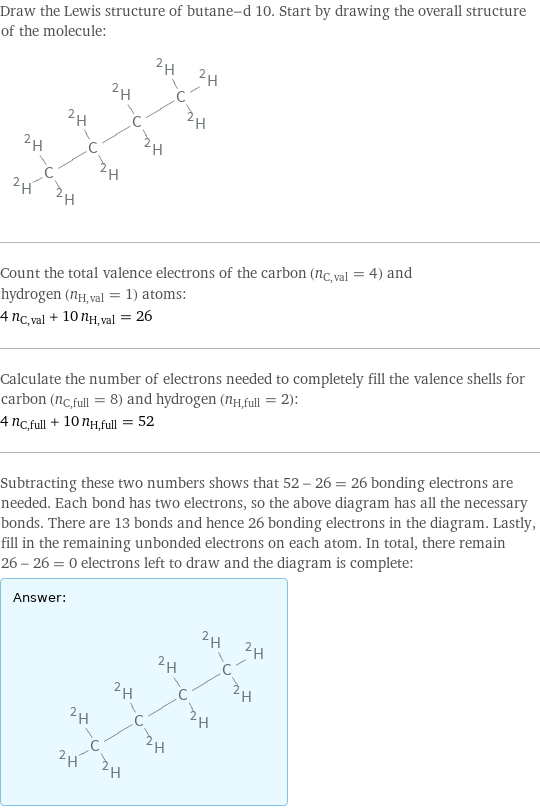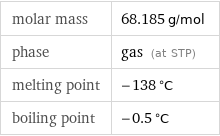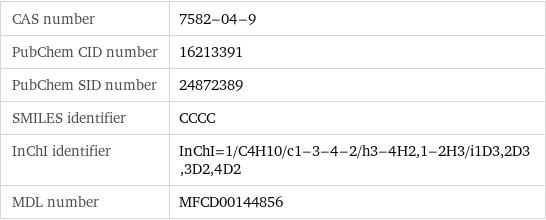Input interpretation

butane-d 10
Chemical names and formulas

formula | CD_3CD_2CD_2CD_3 Hill formula | C_4D_10 name | butane-d 10 IUPAC name | 1, 1, 1, 2, 2, 3, 3, 4, 4, 4-decadeuteriobutane alternate names | 1, 1, 1, 2, 2, 3, 3, 4, 4, 4-decadeuteriobutane mass fractions | C (carbon) 0.705% | H (hydrogen) 0.295%
Lewis structure

Draw the Lewis structure of butane-d 10. Start by drawing the overall structure of the molecule: Count the total valence electrons of the carbon (n_C, val = 4) and hydrogen (n_H, val = 1) atoms: 4 n_C, val + 10 n_H, val = 26 Calculate the number of electrons needed to completely fill the valence shells for carbon (n_C, full = 8) and hydrogen (n_H, full = 2): 4 n_C, full + 10 n_H, full = 52 Subtracting these two numbers shows that 52 - 26 = 26 bonding electrons are needed. Each bond has two electrons, so the above diagram has all the necessary bonds. There are 13 bonds and hence 26 bonding electrons in the diagram. Lastly, fill in the remaining unbonded electrons on each atom. In total, there remain 26 - 26 = 0 electrons left to draw and the diagram is complete: Answer: | |
3D structure

3D structure
Basic properties

molar mass | 68.185 g/mol phase | gas (at STP) melting point | -138 °C boiling point | -0.5 °C
Units

Gas properties (at STP)

vapor density | 2.11 (relative to air)
Non-standard atom properties

H-2 | 10
Chemical identifiers

CAS number | 7582-04-9 PubChem CID number | 16213391 PubChem SID number | 24872389 SMILES identifier | CCCC InChI identifier | InChI=1/C4H10/c1-3-4-2/h3-4H2, 1-2H3/i1D3, 2D3, 3D2, 4D2 MDL number | MFCD00144856